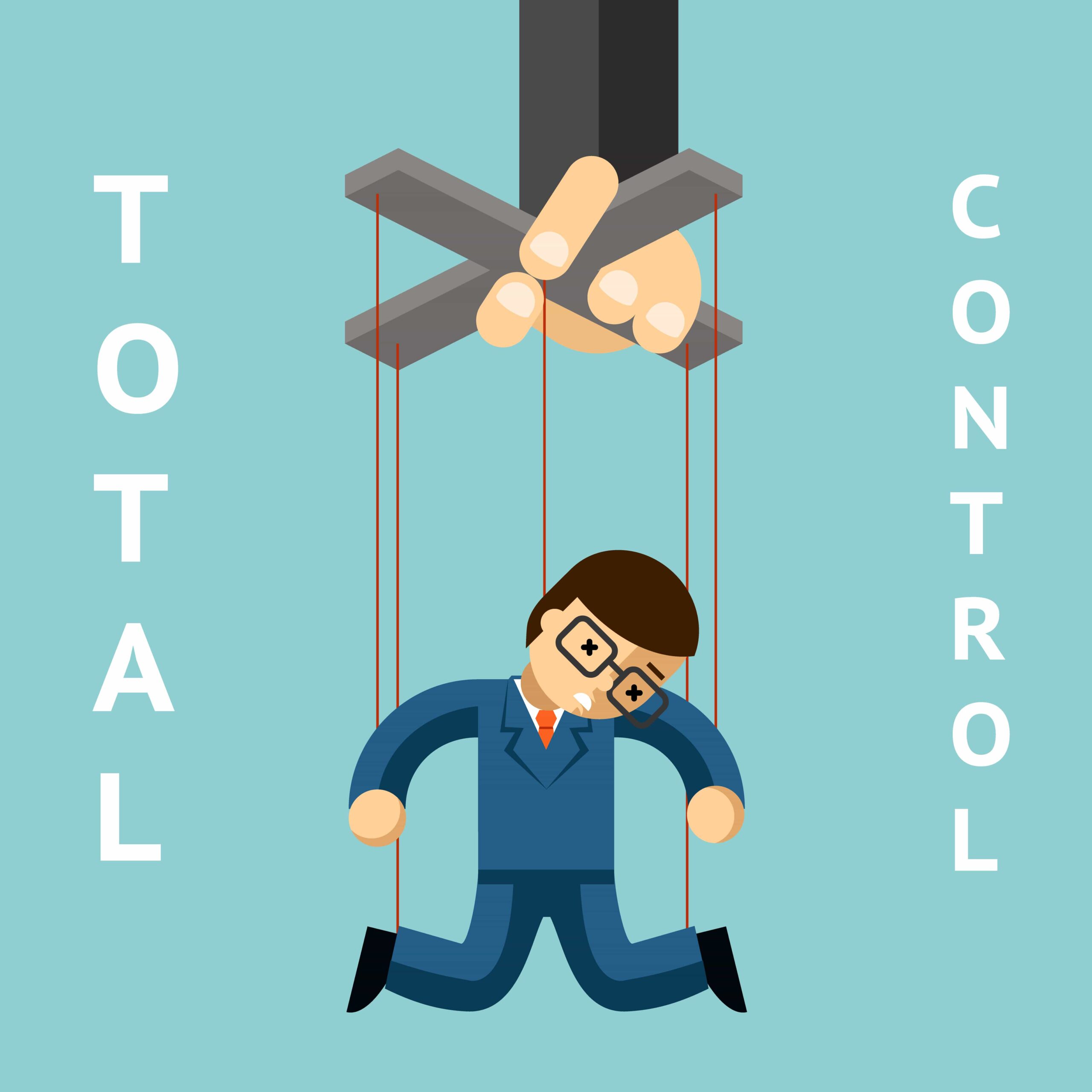What is Gaslighting? Why Is It So Deceiving? – The Question
Gaslighting is a term that’s been gaining popularity recently, but not everyone understands what it really means. If you’ve ever felt confused, doubted your memory, or questioned your perception of reality because of someone else, you may have experienced gaslighting. In this blog, we’ll break down what gaslighting is, why it’s so harmful, and how to recognize it, all in simple terms that anyone can understand.
What is Gaslighting?
Gaslighting is a type of psychological manipulation where one person tries to make another person doubt their own thoughts, feelings, or even memories. It’s a sneaky way of controlling someone by making them feel unsure of what’s real and what isn’t.
This manipulation can happen in any type of relationship: between friends, family members, romantic partners, or even in the workplace. The gaslighter, or the person doing the gaslighting, uses different tactics to confuse the other person, making them question their sense of reality. Over time, this can cause the victim to feel powerless and dependent on the gaslighter for what they believe is “the truth.”
Where Did the Term “Gaslighting” Come From?
The term “gaslighting” comes from a 1938 play called Gas Light, and later a 1944 film adaptation, Gaslight. In the story, a husband manipulates his wife by gradually dimming the gaslights in their home, but when she notices the change and mentions it, he insists that the lights are still the same. He convinces her that she is imagining things, slowly making her question her sanity.
Although the story is fictional, it represents a very real and harmful form of manipulation. The term “gaslighting” has since been used to describe this type of behavior.
How Does Gaslighting Work?
Gaslighting works by slowly wearing down the victim’s confidence and sense of reality. It often happens in small, subtle ways, so the victim might not even realize they’re being manipulated at first. Here’s how it typically works:
1. Denial of Facts:
The gaslighter might deny things that actually happened. For example, if you bring up something hurtful they said, they might respond, “That never happened,” or “You’re remembering it wrong.”
2. Twisting the Truth:
Gaslighters are experts at twisting the truth to fit their narrative. They might take something you said and completely change its meaning, making you feel like you’re the one who’s wrong.
3. Undermining Your Confidence:
Over time, the gaslighter chips away at your self-confidence. You start to doubt your thoughts, memories, and feelings, and you may begin to rely on the gaslighter’s version of events.
4. Isolation:
Many gaslighters try to isolate their victims from others. They might make you feel like nobody else will believe you or that other people are out to get you. This makes it harder for you to seek help or validation from others.
Why Is Gaslighting So Deceiving?
Gaslighting is especially dangerous because it’s often very subtle. It doesn’t usually start with obvious lies or abuse, but with small manipulations. These small actions build up over time, causing the victim to slowly question their own reality.
Here are a few reasons why gaslighting is so deceiving:
1. It’s Gradual:
Gaslighting usually happens over a long period of time. It starts with small lies or doubts, so the victim doesn’t notice what’s happening right away. By the time the manipulation becomes clear, the victim might already feel too confused or insecure to trust their own judgment.
2. It Comes from Trusted People:
Gaslighting is often done by someone the victim loves or trusts, like a partner, parent, or friend. Because of this trust, the victim is more likely to believe the gaslighter’s version of reality, even when it contradicts their own experiences.
3. It Plays on Your Emotions:
Gaslighters often use emotions to manipulate. They may act hurt, angry, or disappointed to make you feel guilty or ashamed. This emotional manipulation makes it even harder to see what’s really going on.
4. It’s Not Always Obvious:
Unlike other forms of abuse, gaslighting isn’t always about yelling or insults. It can be quiet and sneaky, like questioning your memory or making you feel overly sensitive. Because of this, it can be hard to recognize until significant damage has been done.
Common Gaslighting Phrases
If you’ve ever heard or used any of these phrases, it could be a sign of gaslighting:
- “You’re overreacting.”
- “That never happened.”
- “You’re too sensitive.”
- “You’re imagining things.”
- “No one else would put up with you.”
- “You’re being crazy.”
- “You’re making that up.”
These phrases are designed to make you feel like your emotions or experiences aren’t valid, which is the essence of gaslighting.
The Effects of Gaslighting
Gaslighting can have serious effects on a person’s mental and emotional health. Here are some common effects:
1. Loss of Confidence:
Because gaslighting makes you doubt your own thoughts and feelings, it can cause a major blow to your self-esteem. You may start to feel like you can’t trust your own judgment.
2. Confusion and Anxiety:
When you’re constantly questioning what’s real and what’s not, it can cause intense confusion and anxiety. You might feel like you’re walking on eggshells, always second-guessing yourself.
3. Emotional Dependence:
The victim may become emotionally dependent on the gaslighter. Since they’re unsure of their own reality, they may start to rely on the gaslighter to tell them what’s true or what’s right.
4. Isolation:
Gaslighters often try to isolate their victims, making them feel like no one else will understand or believe them. This can lead to a feeling of loneliness, as the victim starts to pull away from friends and family.
How to Recognize Gaslighting
Recognizing gaslighting can be tricky because it’s often subtle. Here are some signs to look out for:
1. You Constantly Doubt Yourself:
If you’re always second-guessing your thoughts, feelings, or memories, it could be a sign of gaslighting.
2. You Feel Confused or “Crazy”:
Gaslighting often makes the victim feel like they’re losing touch with reality. If you feel confused or unsure about what’s real, it’s important to take a step back and assess the situation.
3. You Apologize Too Much:
If you find yourself apologizing all the time, even when you haven’t done anything wrong, it might be because the gaslighter has convinced you that you’re always at fault.
4. You Make Excuses for Someone’s Behavior:
Victims of gaslighting often make excuses for the gaslighter’s behavior, telling themselves, “They didn’t mean it” or “They’re just stressed.”
How to Respond to Gaslighting
If you suspect you’re being gaslighted, here are some steps you can take:
1. Trust Your Instincts:
Your feelings and memories are valid. If something feels off, trust that feeling. Don’t let the gaslighter convince you otherwise.
2. Keep a Journal:
Writing things down can help you keep track of events and how you felt at the time. This can be helpful if the gaslighter tries to twist the truth later on.
3. Talk to Someone You Trust:
It’s important to reach out to someone outside of the situation, like a friend or therapist, who can help you see things more clearly.
4. Set Boundaries:
If possible, try to set boundaries with the gaslighter. This might mean limiting your contact with them or standing firm in your beliefs when they try to manipulate you.
5. Seek Professional Help:
If you’re feeling overwhelmed, it might be helpful to talk to a therapist who can provide support and guidance.
Final Thoughts
Gaslighting is a serious form of manipulation that can have long-lasting effects on your mental and emotional health. It’s sneaky and deceiving because it makes you doubt your own reality. The key to breaking free from gaslighting is recognizing the signs, trusting your instincts, and seeking help when needed.
If you or someone you know is experiencing gaslighting, remember that your thoughts and feelings are valid. Don’t be afraid to stand up for your reality and seek support from people who care about you.
By understanding gaslighting, you can protect yourself from this harmful form of manipulation and build healthier relationships based on trust, respect, and honesty.
Must Read:




